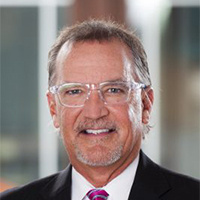Sacramento Criminal Lawyer, Kentucky
Sponsored Law Firm
-
 x
x

Click For More Info:
-
Law Office of Mark S. Guralnick
55 Madison Avenue 4th Floor Morristown, NJ 07960» view mapCriminal Defense Law Dedicated. Fearless. Successful.
Mark S. Guralnick and his legal team have helped clients throughout the USA and across the world by applying unparalleled dedication and hard work to each case.
800-399-8371
John C. Whitfield
✓ VERIFIEDAccident & Injury, Medical Products & Devices, Pharmaceutical Product, Criminal
For over 38 years, John has been one of the premier trial attorneys in Kentucky and Tennessee. He has represented numerous injured parties in the Comm... (more)
FREE CONSULTATION
CONTACTDanny Ray Jackson
Family Law, Criminal, Medical Malpractice, Accident & Injury
Status: In Good Standing
 Mark Guralnick Morristown, NJ
Mark Guralnick Morristown, NJ AboutLaw Office of Mark S. Guralnick
AboutLaw Office of Mark S. Guralnick Practice AreasExpertise
Practice AreasExpertise

